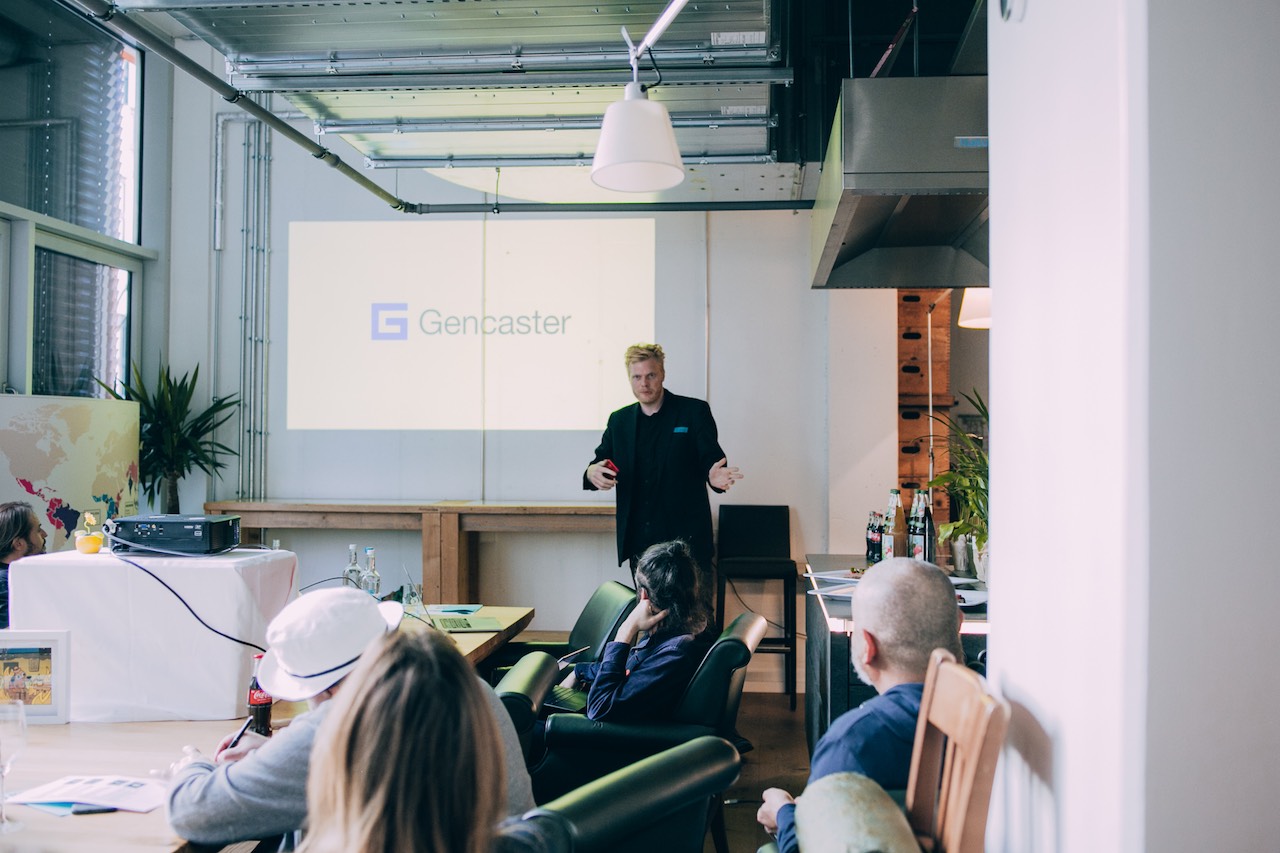A non-linear audio streaming framework for real-time radiophonic experiences and live music.
General
Gencaster is a platform for building audio streaming experiences with dynamic and generative content. This allows for a unique stream per user instead of delivering the same synchronised stream to everyone (traditional radio broadcasting) or relying on on-demand interaction (current streaming/podcast platforms).
This new way of streaming audio allows the introduction of new formats generated by user preference or interaction (e.g. a weather forecast derived from GPS location). Due to the low latency of WebRTC technology, we can achieve new ways of storytelling and story distribution that are not limited to the spoken context, but can also be used for new musical compositions.
Our player (running on WebRTC) allows to embed this audio stream in an app or simply on a website, making the barrier for the user to listen to the stream very low.

Features
Editor
The editor is the control interface for gencaster. It allows anyone to create, manage and update their own dynamic audio experiences. The graph-based layout represents the logical connections between the different parts of the audio composition. Each node in turn contains the information needed to create the individual scenes. These can range from uploaded audio recordings to completely real-time generated content, allowing for a wide range of formats. We have focused on creating an editor that can be used without any specific coding experience. However, for those who want to take their creations to the next level, the node cells can be extended with code in different languages to increase complexity or add dynamic content, such as generated text, generative background music or special logic.
News
Support






